Environmental issues: Waste and waste management
Waste is a global problem, even in the countries of the Global North. Although people often boast about waste separation systems and recycling, in the end far less than half of plastic waste, for example, is recycled. Even if the issue of recycling is not always regulated in a transparent way, there is a state-organised and regulated waste management system. This is not the case in many southern countries.
Depending on the region, household waste is often incinerated, especially in villages. In cities, there are generally no recycling systems and most (plastic) waste ends up in landfills. You will therefore find different ways of disposing of waste in your temporary home. While in the city you will usually have a rubbish bin at your disposal, in the village the rubbish may still be burned. This varies from country to country and region to region.
Some recycling systems are in place, particularly in larger cities. But even when the infrastructure for nationwide systems is promoted by governments and local authorities, it is often private initiatives that drive them forward.
Informal waste collectors, for example, are an integral part of waste management. They search containers and bins for recyclable materials such as plastic, paper and metal, which they sell to make a living. However, it is also common to see homeless people searching through bins and rubbish bags for food, especially during the weekly rubbish collection.
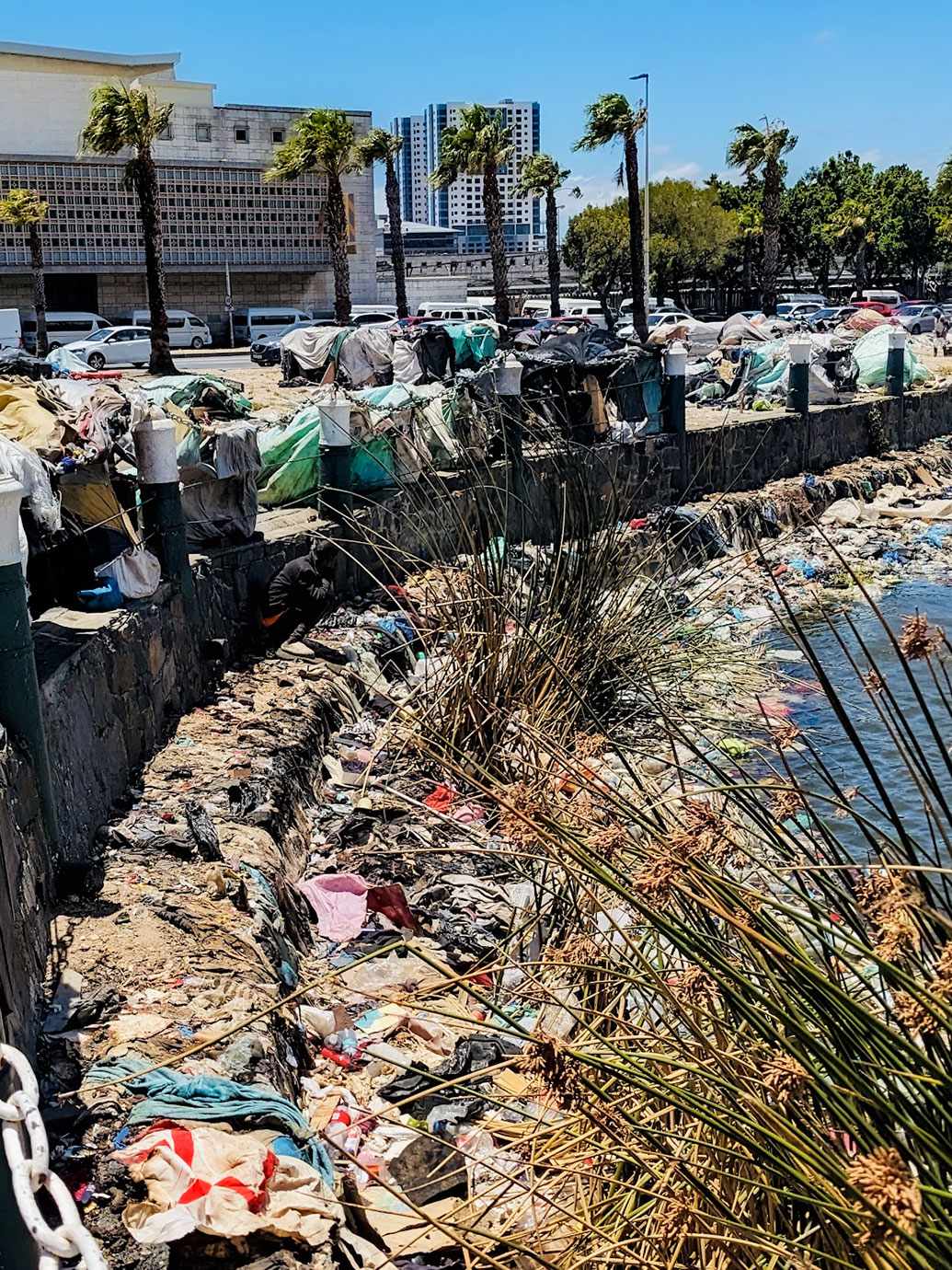
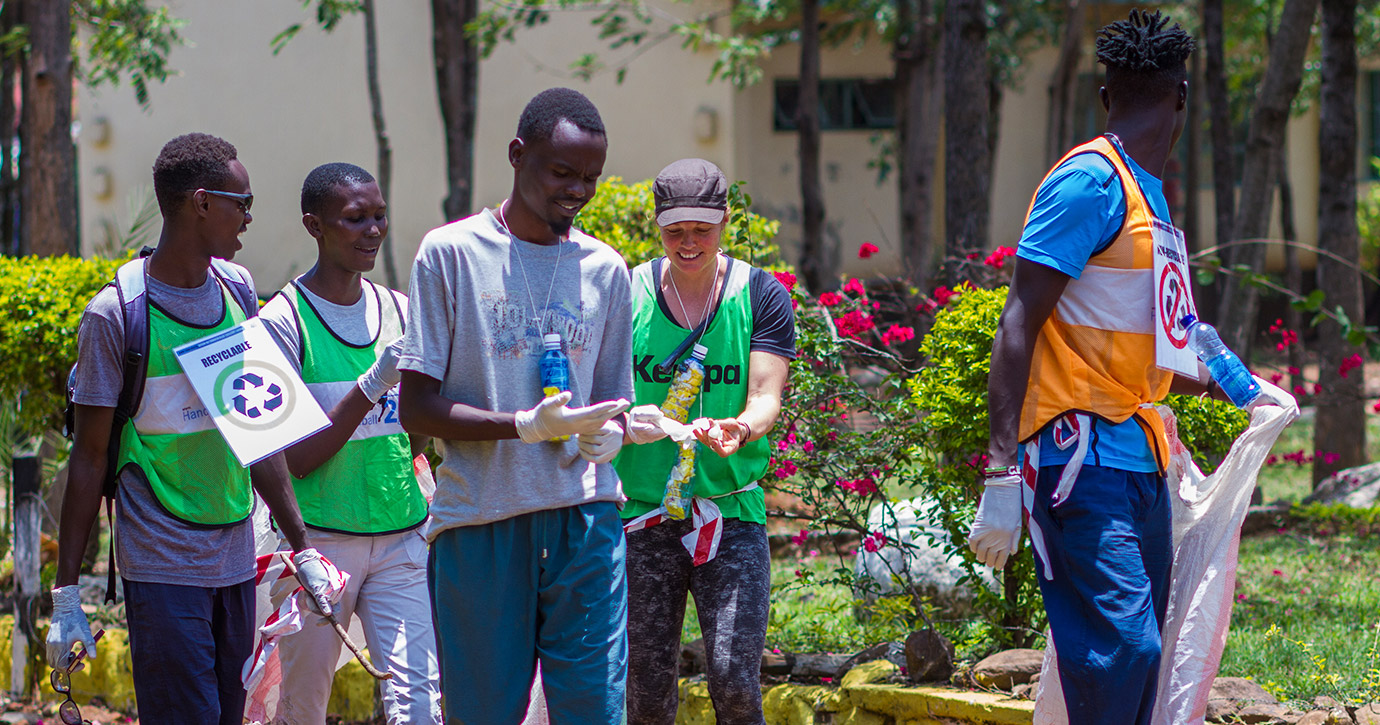
However, waste separation is not only a structural problem, and a lack of systems and facilities prevents clean waste separation.
Education and information are also crucial for waste separation. Awareness of waste separation, waste recovery and general waste prevention is growing in African countries. However, environmental awareness often depends on personal economic circumstances.
Unfortunately, access to information and resources on waste separation and recycling in rural areas is still lower than in urban areas. Even though NGOs and volunteer communities are increasingly trying to raise awareness and educate the population through schools, environmental groups and community initiatives.
However, despite growing environmental awareness and behaviour, waste separation often fails due to a lack of infrastructure. As a result, everything still ends up in the same bin or is burnt, either on the doorstep or in large landfill sites. And it’s not just our own waste that ends up there, but that of Europe too. Exporting waste is a lucrative business.
But it is also important to note that some African countries are already well ahead of European countries when it comes to banning plastic. Rwanda banned the sale and use of plastic bags in 2008.
Beware: plastic offenders can even be jailed. Thin plastic bags have also been banned in Kenya since 2017. So when packing your bags, make sure you use alternative textile bags.
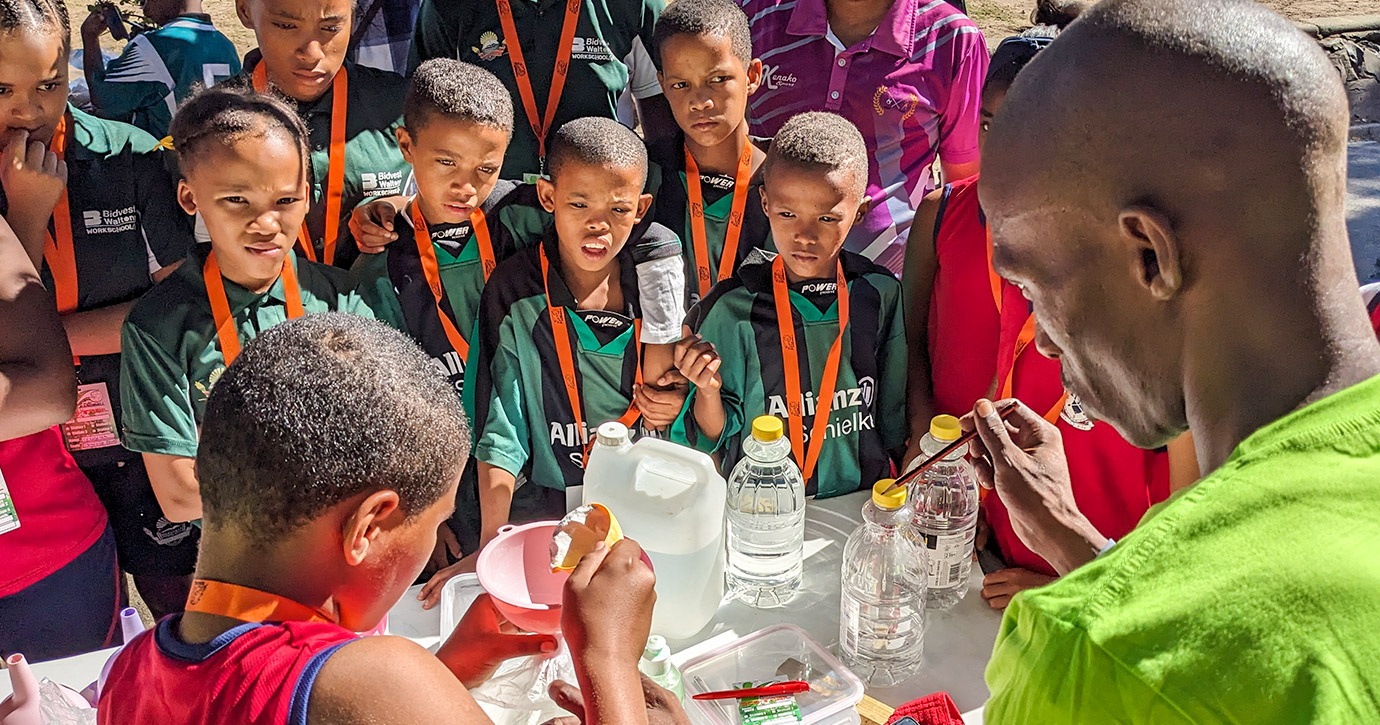

As a volunteer trainer, you can have a positive influence on children and young people as part of your project work.
Think about how you can promote understanding and awareness of waste separation or waste in general through specific activities or lessons. Try to agree with those responsible for your project how you can set up and develop such programmes, whether after school or during training.
If, based on your observations, you also notice things in your host family that could be improved (and are feasible), do not hesitate to explain your point of view or make appropriate suggestions. But again, be sensitive and don’t come across as a know-it-all. Some things are just not feasible. Not because of a lack of motivation or knowledge, but for the reasons already mentioned.
Water supply and availability: When the tap does not run
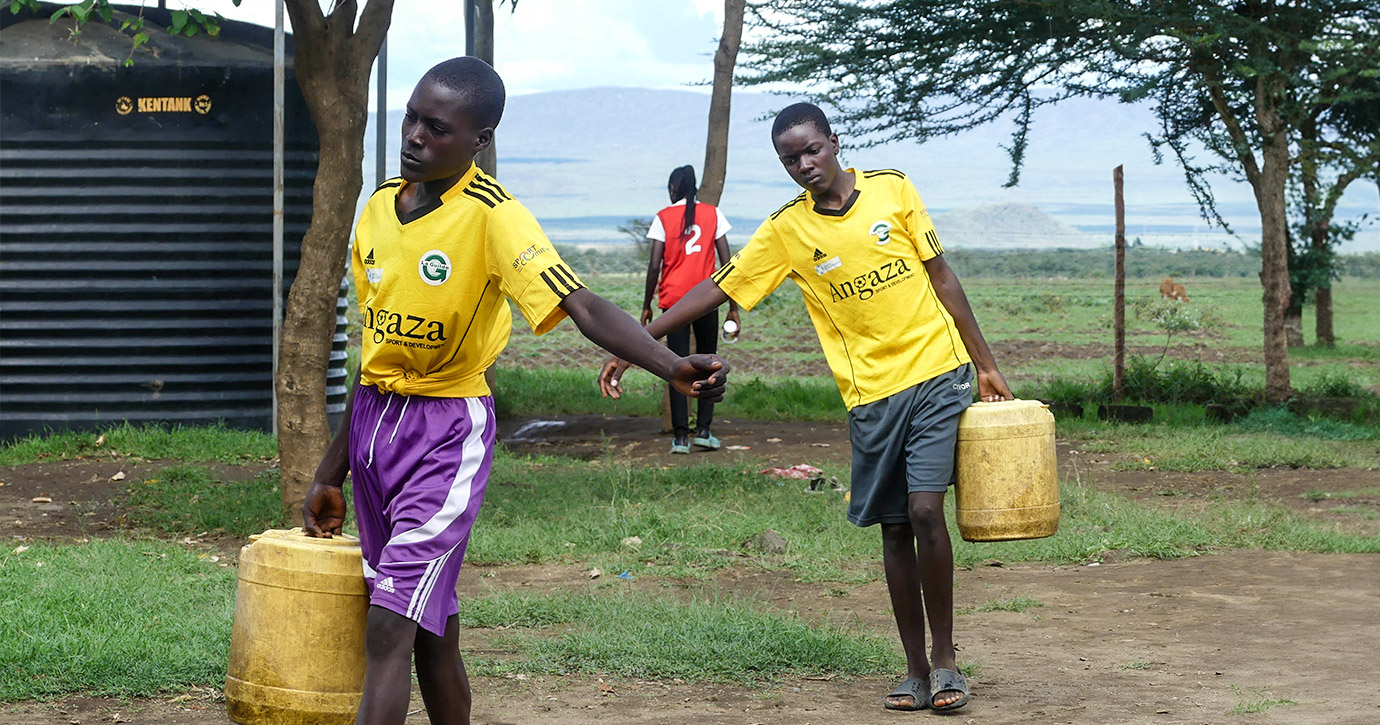
In cities, water quality can be affected by a lack of infrastructure and pollution. For example, outdated water supply systems can lead to a deterioration in supply due to leaks and burst pipes, and pollution can reduce water quality.
Industrial waste, uncontrolled landfills and illegal dumping can also contaminate groundwater. In addition, the lack of adequate sanitation facilities, such as toilets and sewage systems, can contaminate groundwater and often leads to heavy chlorination by municipal waterworks.
Droughts and associated water shortages can force local authorities to turn off the water supply for a few hours a day or, depending on the region, deliver it by tanker. Again, it depends on where you are, so always check.
Electricity: with a headlamp and a power bank
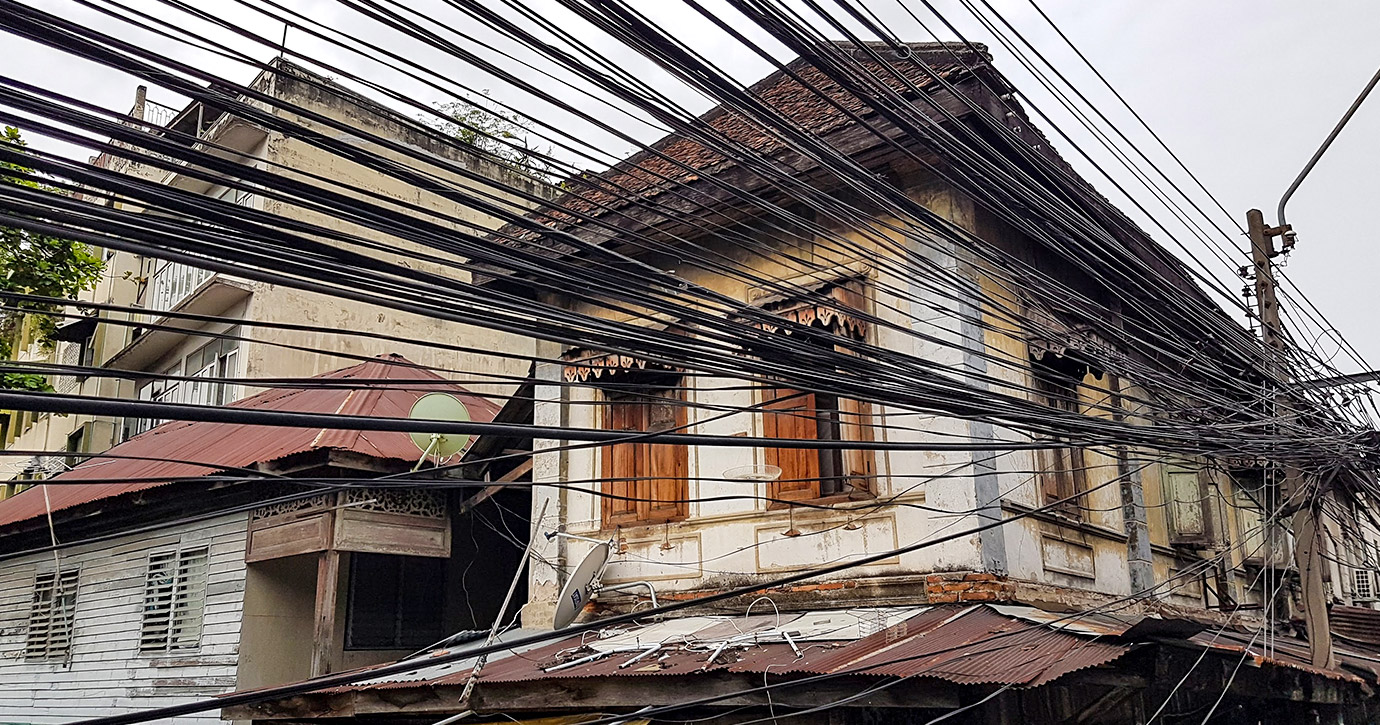
Electricity from a socket at any time is not a given for everyone around the world. While cities in all African countries are generally connected to the grid, many rural areas are not.
Access to electricity varies greatly from country to country, region to region and city to city. While the electricity grid is almost fully developed in Morocco, Tunisia and South Africa, more than half of the population in Ethiopia, Rwanda and Benin has no access to electricity. In addition to inadequate infrastructure, the power supply itself can be unreliable.
Depending on where you live, you may experience power outages or even planned power cuts. In South Africa in particular, load shedding has been a problem for a number of years, with power being cut off in certain areas for several hours at predetermined times. Electrical appliances cannot be used unless diesel generators or other solutions are available. Traffic lights can also fail, and restaurants and cafes can stop operating.
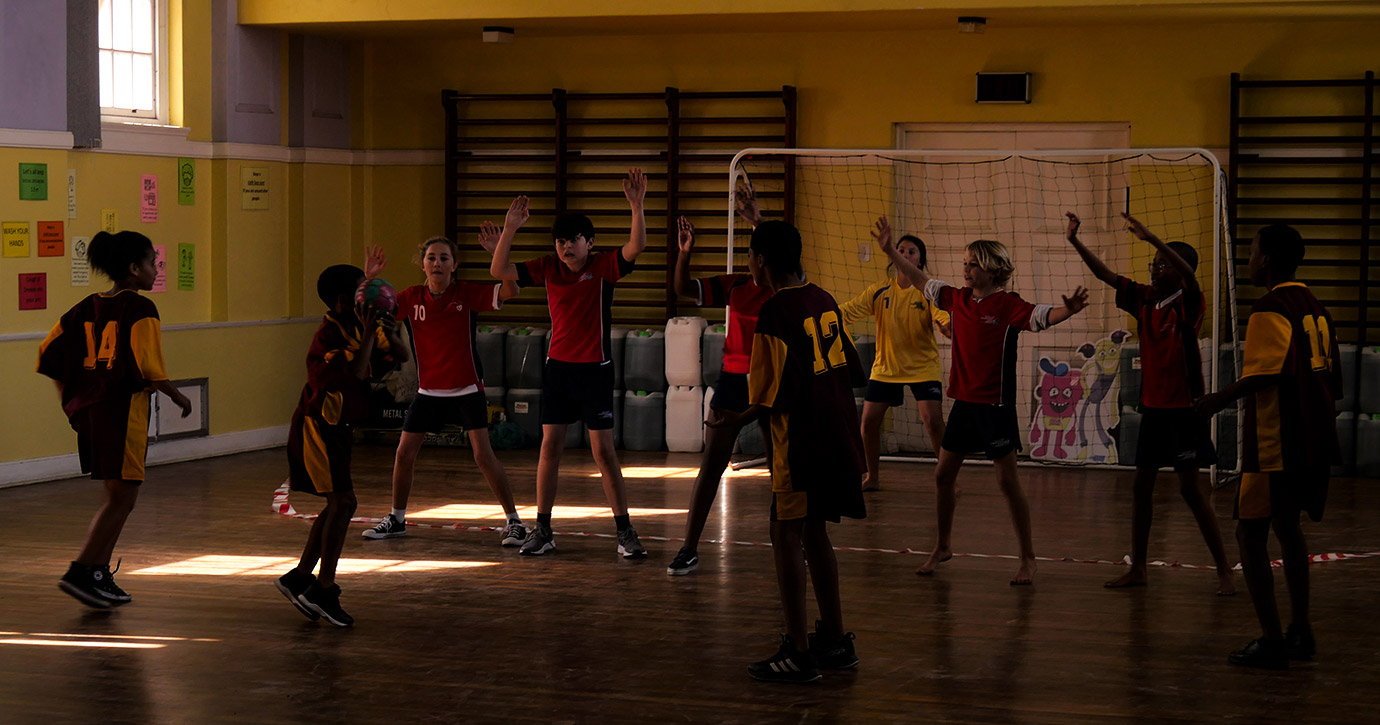
This is also a big challenge for your host family.
For example, fridges may stop working, lights may not come on and phones may not charge. Be prepared for this and take, for example, a headlamp to help you find your way around your accommodation or a spare battery/power bank to charge your mobile phone.
In areas that are not connected to the grid, people may still cook with wood or use alternative energy sources such as home solar panels or paraffin and gas lamps for lighting and cooking. In addition, electricity is often very expensive and is often paid for in advance on a prepaid basis.
Wifi and Internet connection: Not always a given
In many countries, especially in rural areas, wifi or internet access at home is not always a given. This makes it all the more important to choose a good phone provider with good coverage, even in remote areas. However, even here there can be outages, especially if the power supply is also affected. Data speeds can also vary considerably, especially at peak times.
As you will only be in the country for a limited time, it makes sense to choose one of the many pre-paid tariffs. You can also top up your credit in many shops, petrol stations and even small stores. If this is not possible, hotels, restaurants and public places often offer Wi-Fi access.
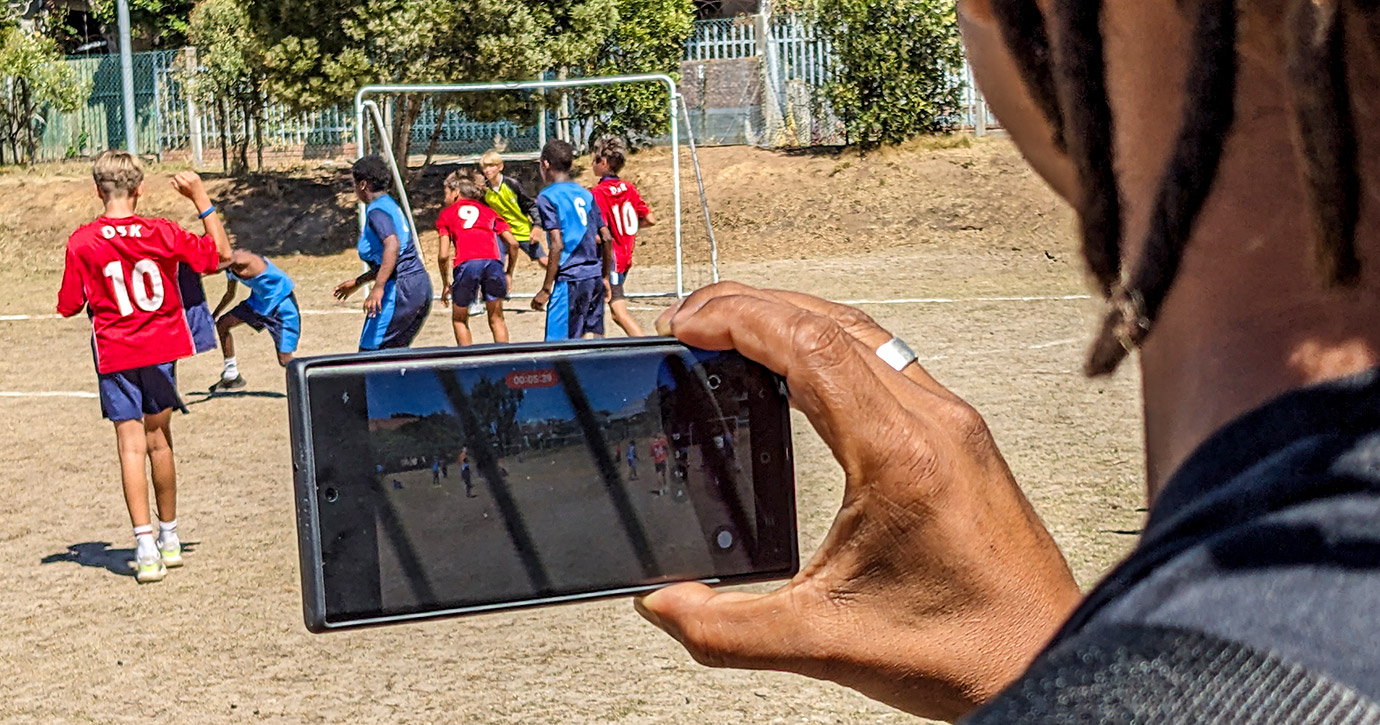
Taxi, tuktuk, Toyota bus: public and private transport
Depending on where your project and therefore your accommodation is located, you should start thinking about (public) transport in your first days. Whether it is to get from your new home to the project location or simply to go shopping.
If, for example, transport to and from the project location is not organised by the project itself, you should familiarise yourself with the options available. Your host family and project mentor will help you with this.
It is also important to follow the instructions of your local contact persons. They live in the area and know their way around, which roads and traffic routes to avoid, which means of transport are acceptable or what prices apply, especially for informal taxis or motorbike taxis.
Whether you are in a township, a city or the countryside, follow the instructions as your safety may depend on it. Be aware of the potential risks when and how you move around. Try to travel during the day if possible. Avoid travelling in the evening or at night, whether by bus or minibus. Familiarise yourself with routes, transfer options and costs.

If you are staying with a host family, you will be treated as a member of the family. You should therefore tell them as much as possible in advance about where you are going and when you expect to return.
As you have probably moved away from home before, this will be unfamiliar at first. But remember that it’s not about control, it’s about caring. If the family knows, they will worry less.
If, after some time, you want or are allowed to use the family car or even a project car for short journeys, make sure you have all the necessary insurance cover in place.
There are usually insurance stickers on the windscreen that must not have expired. Don’t be tempted to run errands for the project if you don’t have valid insurance cover. Remember that you are always personally liable and have sole responsibility. Be it for the car, the things you are transporting, other road users or people from your sports team you are transporting.
Find out more about public transport, e-hailing and driving in our “Tips for safety and managing risks when volunteering abroad“.
More on the topic:
To make your expectations as realistic as possible, you should also find out about the possible external living conditions, such as climate, area and why a gecko on the wall can be a common sight. Expectations and reality: Host family accommodation
